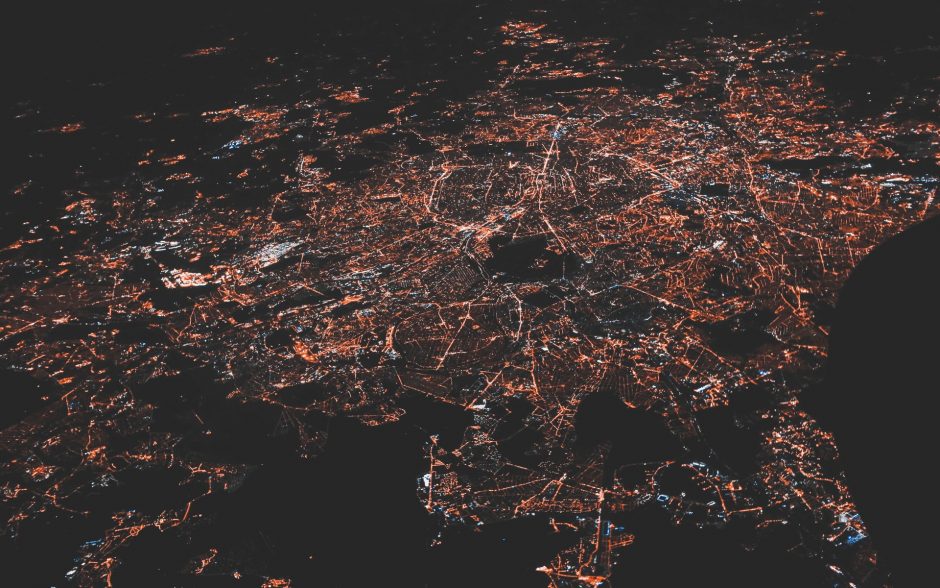A scientist’s opinion: Interview with Cliona Howie Del Rio about systems thinking

The European Science-Media Hub recently published an interview with Cliona Howie Del Rio, Head of Circular Economy at Climate-KIC and coordinator of CICERONE.
We are living in a society full of uncertainty at the moment. What are the most urgent issues that need to be solved from your perspective?
 “The most urgent issue that needs to be solved at the moment is, of course, a health pandemic. But what’s interesting with COVID-19 is that one can draw a lot of parallels and similarities between this crisis on one hand, and the climate crisis on the other. In reality, these two have more direct links than just being similar. Both, for instance, stemmed from unnatural impacts on the natural world.
“The most urgent issue that needs to be solved at the moment is, of course, a health pandemic. But what’s interesting with COVID-19 is that one can draw a lot of parallels and similarities between this crisis on one hand, and the climate crisis on the other. In reality, these two have more direct links than just being similar. Both, for instance, stemmed from unnatural impacts on the natural world.
In order to move forward, we need to ask what we can learn from COVID-19 to get a bigger picture. One of our lessons from COVID-19 is that behavioural change at all levels can happen. During COVID-19, limited access to specific materials and tools have urged policy changes under immense time pressure. Because of the policy change, our day-to-day decisions, for instance whether to go to the store or not, also needed to change. If we do not take the opportunity to learn from this experience, we won’t be able to address climate change, which is actually the bigger world crisis that our world is facing today.”
How do you think the world will need to change after Covid-19? What approaches and solutions do we need in order to tackle the climate challenge?
“While our behavioural change to travel less and switch to online meetings seems to have some impacts in solving climate issues, it is simply not enough. What we really need is a ‘bold policy change’ to result in behavioural change. Unfortunately, given the urgency of the situation, we don’t have enough time and rely on the goodwill of people to voluntarily change their habits. As seen in the case of COVID-19, a bold policy change mobilises people to adapt and adjust in phases. If a similar approach is taken to regulate our industries and CO2 emissions, it will have impacts on the way we use energy and the way we travel. But making a radical policy change in the energy sector overnight is unrealistic. Policy change with a phased approach in an urgent, but adjustable way is needed to tackle climate challenges.
To meet the climate target in the years to come, we need more public-private collaboration and innovative partnerships where business and government come together in the ways we have never seen before. From behavioural to policy change and everything in between, we need substantial and effective collaboration.”
Can you tell us more about CICERONE and how it addresses climate issues?
“Circular economy is identified as one of the best ways to tackle climate change because of its systemic approach to transformation. It’s about looking across an entire social economic model from education to financial systems, from innovation to behavioral change. It is a paradigm that will help us build a resilient and sustainable future.
Yet, we have a very fragmented approach to the way circular economy is being financed in Europe. While regional and national governments have funding programmes to encourage circular transition, there is no benchmark of what is right or wrong. This has led us to ask, “Can we have a coordinated approach across Europe to identify, prioritise, and efficiently fund circular economy?” This is what CICERONE is aiming to achieve.
While having a uniform approach across Europe may be difficult, we need to break down the silos and make cross-boundary shifts. CICERONE not only coordinates the efforts through a Strategic Agenda for Circular Economy Research & Innovation, but also provides a platform for programme owners to connect and learn from one another and share experiences and best practices. It also opens up the opportunity for joint programming where neighbouring regions can collaborate and accelerate the transition.”
From your perspective, what role do journalists and science communicators play in making a systems change?
“I believe the role media plays is crucial because people depend on it in so many ways, even ways that they don’t even realise. Media infiltrates you based on what you read and what you hear. It has the power to change human behaviour and public opinion, which would then have an impact on policy making. The role of the media in helping tackle the climate crisis and being a trusted source of information is one of the most important things we’ll need to have if we’re going to tackle this crisis.
I think that there is a duty and responsibility for those of us who work on circular transition to appreciate and understand the need to communicate better and work with the media. We need to learn that it starts with people like us. I believe that collaboration is the key if we want to save the world, and we need to work better with journalists and communicators to make the change.”
This article first appeared on the European Science-Media Hub. The interview was conducted by Rina Tsubaki .
